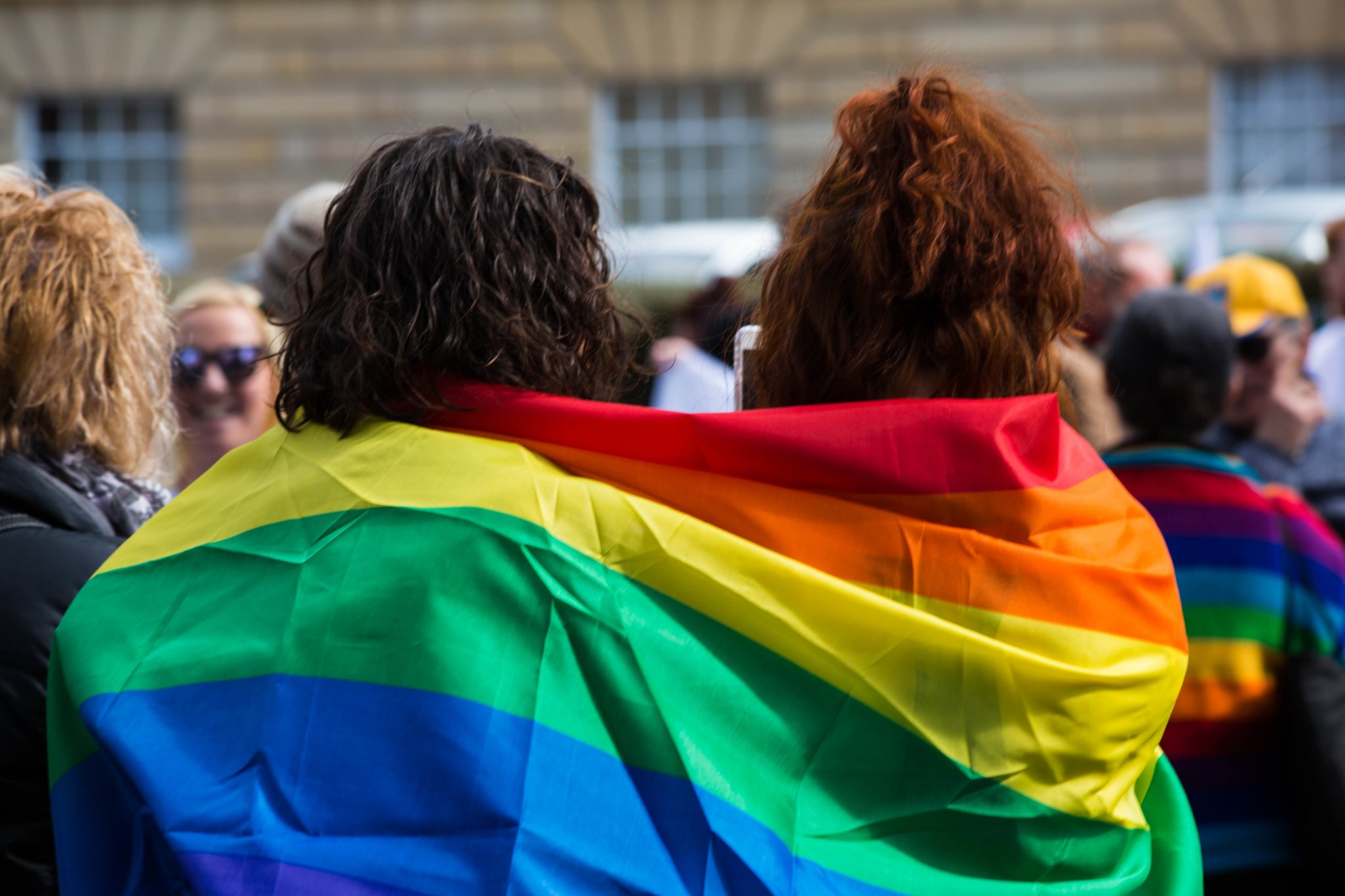For years, Australia’s LGBT activists would practically froth at the mouth in rage over the suggestion that same-sex marriage should be tested by a popular vote.
This red line, coupled with good old-fashioned politicking from some particularly intransigent leaders on both sides of the issue, held up progress while two dozen countries leapfrogged ahead of Australia in legalizing same-sex marriage.
But now that the government has found a way around the stalemated Parliament to hold its postal vote on same-sex marriage, I have to wonder what all the fuss was about.
For sure, it’s easy for me to write this from the other side of the Pacific. But this vote has all the hallmarks of a slam dunk for the LGBT community.
The prime minister, the opposition leader, most members of Parliament, and most state legislators are publicly campaigning for the Yes side for same-sex marriage. The media is almost entirely onside and has been for years.
Polls consistently show huge majorities in favour of legalizing same-sex marriage (even if some recent polls show the Yes side slipping a bit). And Australia is already otherwise a fairly progressive nation when it comes to LGBT rights legislation.
If the Yes side can’t win in these circumstances, maybe it doesn’t deserve to.
Yes, yes, it’s inherently unfair for minorities to have their rights subject to majority vote. It’s demeaning to have to ask others to support your basic equality. Referenda bring out negative campaigns that can be disturbing to marginalized people, especially young people. Ideally, it would be better if these battles didn’t have to be fought.
And yet, fighting for what you believe in is the basic responsibility of citizens in a democracy. To pretend that it’s somehow different to vote on a minority issue directly, or to vote on it indirectly by voting for and against politicians based on their stands on the issue is foolhardy.
Put another way: it’s not as if LGBT rights aren’t at stake when Americans decide between Democrats and Republicans, when Canadians decide between Conservatives and anybody else, or when the Aussies picked between their (conservative) Liberal and Labor parties.
True, in the best constitutional democracies, minorities are protected by a charter of rights, an independent judiciary, and legislators who have a basic sense of decency. But even in these countries, the basic rules of the game must be endorsed by the majority.
Recent history has already given us examples where the LGBT movement got ahead of the public sentiment, and it didn’t work out well at all.
In 2015, Slovenian legislators passed a same-sex marriage law, the first in a post-communist or Slavic country. Motivated homophobes were able to use constitutional rules to compel a referendum on blocking the law, and won 63 percent of the vote to kill the bill (they’d done the same to a registered partnership bill in 2012).
Earlier this year, Bermuda’s Supreme Court legalized same-sex marriage, just a year after the public voted by 2-to-1 margins against both same-sex marriage and civil unions in a non-binding referendum. Months later, the public elected a new government that seems intent on legislating away equal marriage.
Notably, the US Supreme Court’s 2015 decision to legalize same-sex marriage came after public opinion polls had revealed consistent majorities in favour. By contrast, when the Hawaii Supreme Court first ruled in favour of same-sex marriage in 1993, long before the US public had come around on the issue, it sparked 20 years of revolt against gay rights.
The American history of referenda on marriage may have been particularly traumatic to LGBT communities.
Between 1998 and 2014, LGBT activists lost 33 referenda that sought to constitutionally ban same-sex marriage and civil unions or repeal same-sex marriage laws passed by legislators. But those referenda also helped galvanize the LGBT community and its supporters.
Together, they won several referendum victories, including in Arizona and Minnesota, where proposed bans were quashed, in Maine where a previous ban was reversed, and in Washington and Maryland where attempts to stop equal marriage legislation were voted down. Those later victories demonstrated the shift in the popular mood and strengthened the case for equality.
Globally, referenda have been a mixed bag. Constitutional bans on same-sex marriage have been won by public votes in Kyrgyzstan (2016), Croatia (2013), Palau (2008), and Serbia (2006). But there have also been LGBT successes.
Swiss voters fought back against two constitutional bans last year, and voted for registered partnerships in 2012. Ireland was the first country to legalize same-sex marriage by referendum in 2015 and Liechtenstein’s people ratified a civil partnership law in 2011.
Ecuadorians endorsed both civil unions and a same-sex marriage ban in their 2008 constitutional referendum. Voters in Slovakia overwhelmingly supported a same-sex marriage ban in 2015, but activists successfully orchestrated a large enough boycott of the vote that it failed on turnout.
Whether we like it or not, referenda are a legitimate tool of democracy. And we better learn to like it, because direct votes on our rights aren’t going away anytime soon.
After the vote in Australia, we can look forward to a referendum on same-sex marriage in Switzerland currently planned for 2019, as well as votes on constitutional bans on same-sex marriage later this year in Romania and Georgia.
Moreover, at least 31 countries currently have constitutions that constrain LGBT rights, especially around marriage and family relationships, and for most of them change requires a public vote.
This is not to say that working with legislators or through the courts to secure our rights is a bad strategy. But LGBT people mustn’t shy away from winning over the public to our side.
Indeed, our ultimate acceptance and security depend on it.


 Why you can trust Xtra
Why you can trust Xtra


